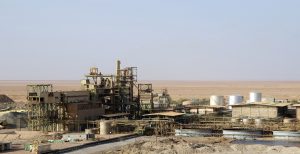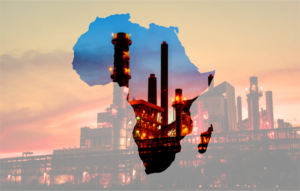In the Orano vs Republic of Niger Arbitration, Niamey Appoints Representative, while Broader Economic and Social Stakes Emerge

© ADOBESTOCK
In Niamey, the government of Niger has officially appointed a representative in the arbitration case brought by French nuclear fuel giant Orano before the International Court of Arbitration in Paris, marking a decisive moment in the deepening dispute between the Sahel nation and one of its oldest foreign investors.
At first glance, this may appear to be another legal battle over corporate contracts. Yet the arbitration raises questions that reach well beyond courtrooms and balance sheets. The case touches on the economic sovereignty of Niger, the resilience of its people, and the evolving balance of power between African states and long-entrenched foreign extractive interests.
Orano, formerly known as Areva, has operated uranium mines in Niger for decades, supplying a significant share of the raw material that fuels France’s nuclear reactors, an energy source that generates roughly 70% of French electricity. Uranium mining has long been at the heart of Franco-Niger relations, though Nigeriens have frequently criticized the arrangement as disproportionately benefiting France while leaving local communities impoverished.

The dispute escalated after Niger’s military-led government began reviewing mining agreements and signaling its intent to renegotiate contracts on more favorable terms. Orano turned to arbitration, seeking to enforce its contractual rights. Niamey’s move to designate a legal representative shows its determination not only to defend its position but also to assert sovereignty in the face of foreign corporate pressure.
At stake are billions in potential revenues, foreign exchange earnings, and fiscal contributions. Uranium historically accounts for up to 40% of Niger’s exports, though its share has declined with global price fluctuations and new producers entering the market.
Niger’s economy is one of the poorest in the world, but to her, uranium remains both a strategic asset and a potential trap. On one hand, higher revenues from renegotiated contracts could bolster public finances, fund infrastructure, and support development. On the other, prolonged arbitration risks chilling foreign investment, worsening capital flight, and deterring new partnerships in mining or energy.
Economists note that this case highlights the structural tension in African resource economies: how to capture more value from natural resources without discouraging investment in a competitive global marketplace.
The arbitration coincides with broader geopolitical shifts in the Sahel region. The Niger, Mali and Burkina Faso nations, now led by military juntas, have distanced themselves from France and forged closer ties with Russia and other non-Western partners. The Orano dispute thus becomes more than a legal quarrel: it is a symbol of Africa’s recalibration in foreign relations.
If Niamey prevails, it may embolden other African governments to contest legacy contracts signed under postcolonial arrangements. Conversely, a ruling in Orano’s favor could reinforce the durability of Western corporate influence in the region.
Domestically, the junta will also use the dispute as political capital, framing its defense of Niger’s uranium as an act of national dignity and sovereignty, a message resonating strongly with citizens weary of foreign domination.
Beyond economics and politics, the crisis carries profound human consequences. Families in mining regions such as Arlit and Akokan have long grappled with health issues linked to radiation exposure, scarce job opportunities, and environmental degradation. Communities have seen traditional livelihoods disrupted, while the promise of widespread prosperity from uranium wealth has largely failed to materialize.
Culturally, the arbitration debate stirs deeper reflections on postcolonial identity: Who ultimately benefits from Niger’s natural wealth? For many Nigeriens, the dispute symbolizes the broader struggle to reclaim agency over national resources and reorient them toward local well-being rather than foreign consumption.
For businesses, the arbitration introduces uncertainty. Foreign investors are watching closely to gauge whether Niger’s new governance posture signals hostility toward private enterprise or a recalibration toward fairer partnerships. Local entrepreneurs, meanwhile, hope that any eventual settlement might redirect revenues into domestic supply chains, stimulating small and medium enterprises (SMEs) and reducing dependency on external actors.
On the social front, prolonged disputes risk stoking frustration, particularly if workers face job losses or mines slow operations. Given Niger’s already fragile security environment, marked by insurgencies, food insecurity and displacement, the economic shocks could exacerbate social unrest.
The arbitration will likely take months, if not years, to resolve. Meanwhile, Niger faces a delicate balancing act: asserting sovereignty without isolating itself economically, safeguarding revenues without undermining investor confidence and defending national dignity while ensuring that her people – families, workers, migrants and future generations that should truly benefit from the uranium beneath their soil.
The Orano vs Niger case is thus far more than a courtroom drama. It is a lens into Africa’s search for equitable globalization, a test of Niger’s economic governance, and a reminder that behind every legal dispute lie human lives, cultural legacies, and the quest for dignity in a rapidly changing world.









